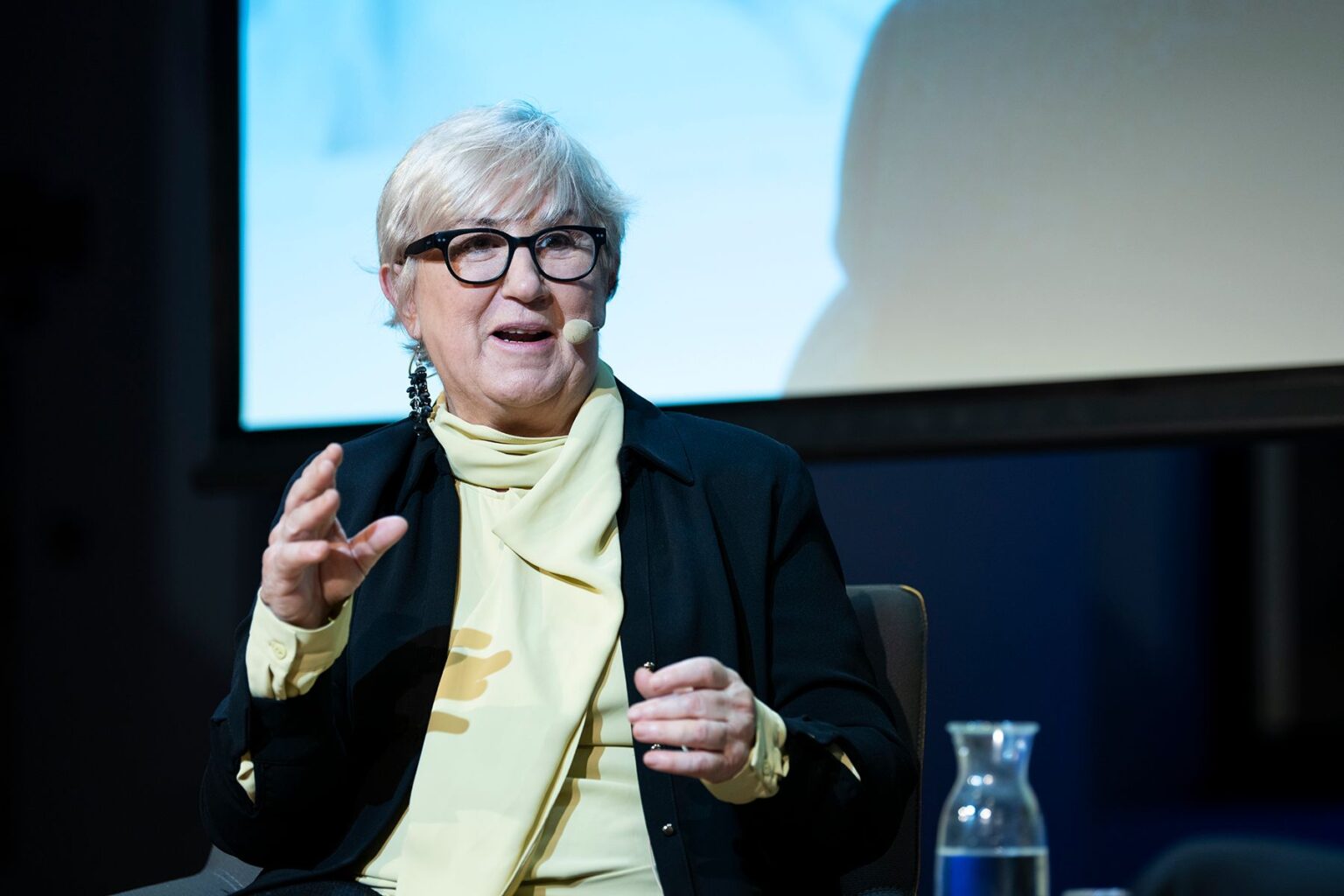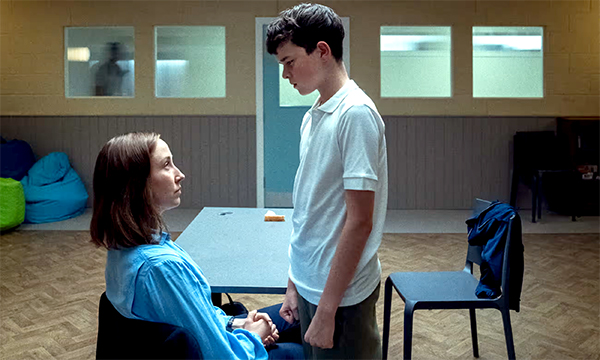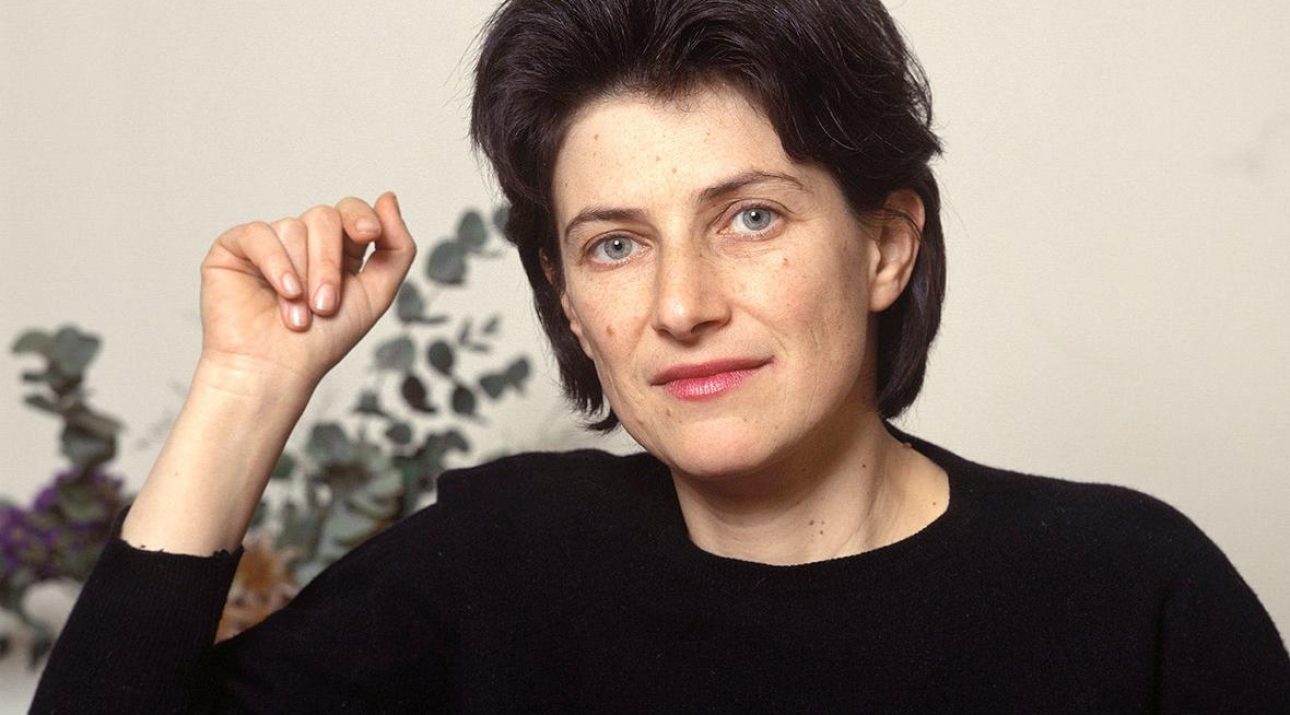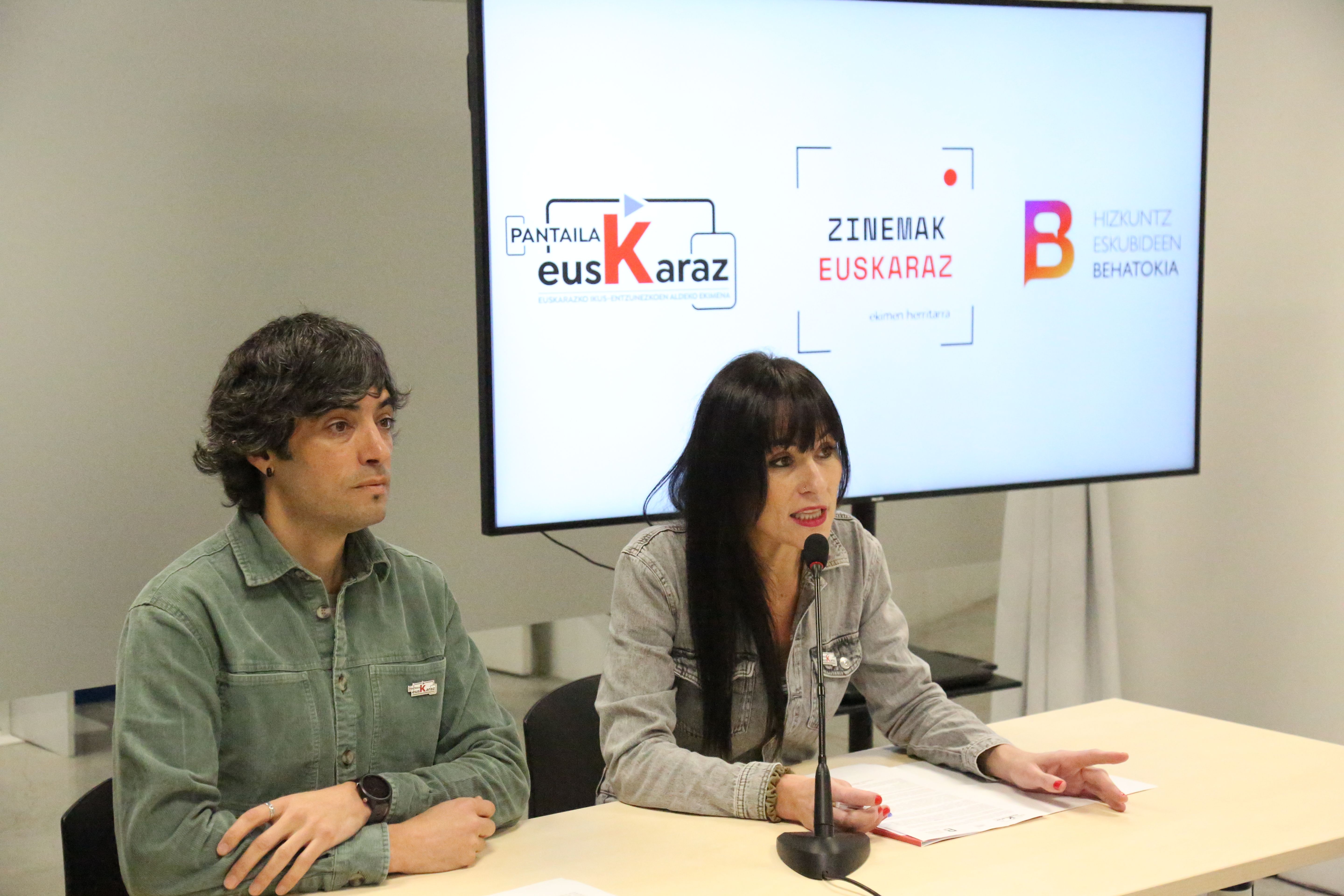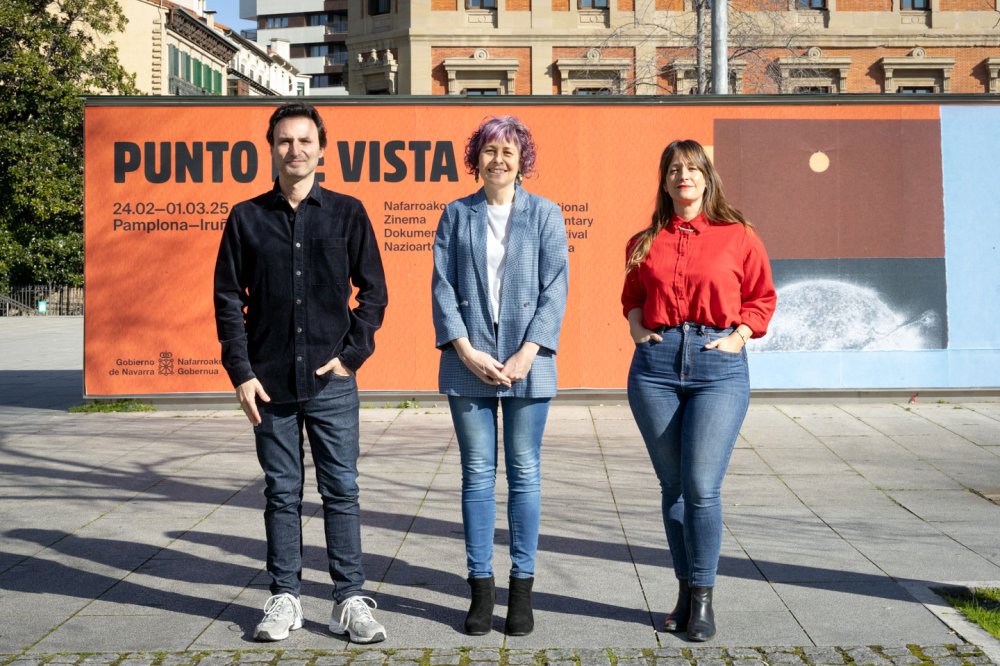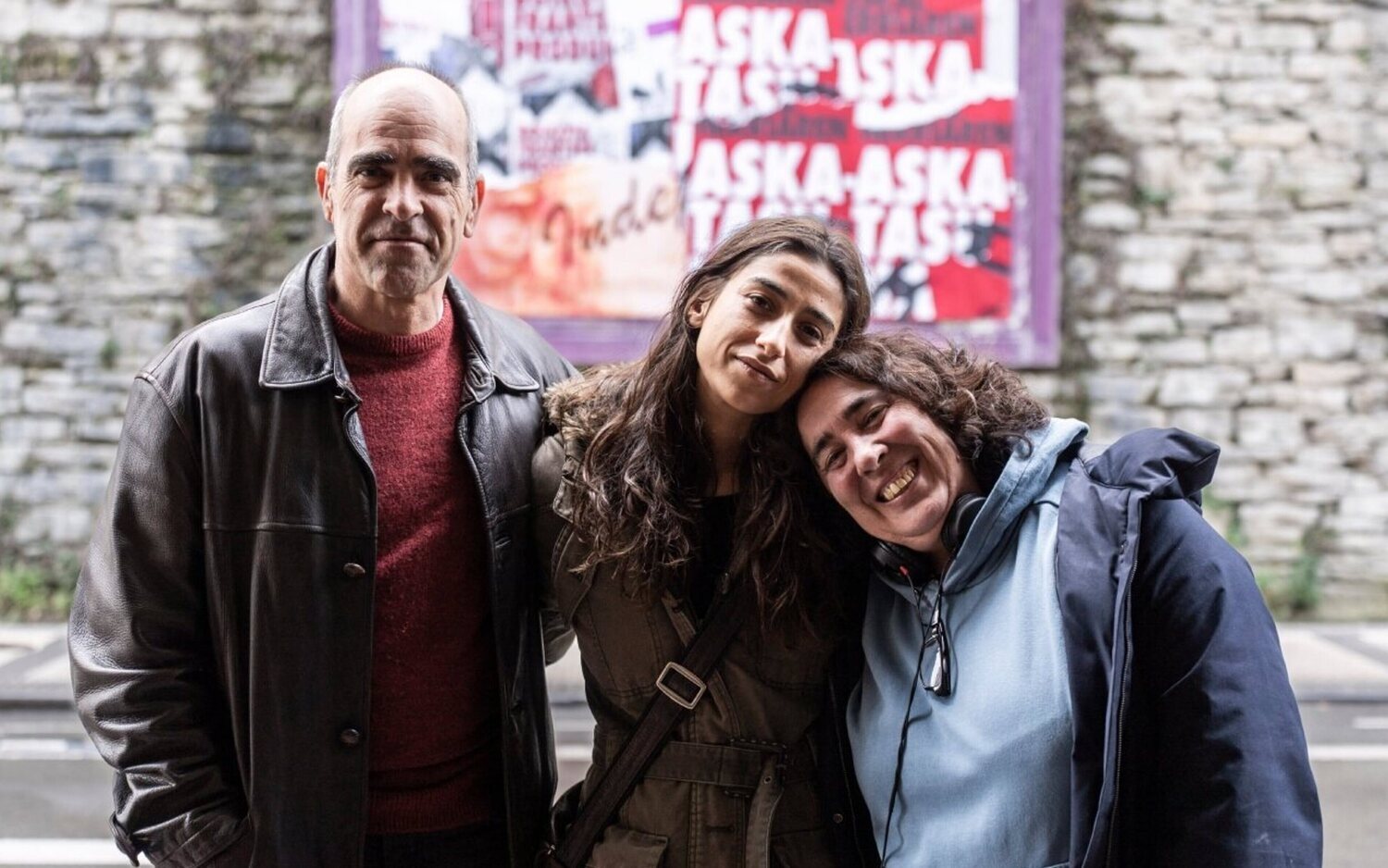"In fiction, pregnant women usually only talk about pregnancy."
- The actress Aina Clotet (Barcelona, Catalan Countries, 1982) received the Biznaga de Plata Prize at the Málaga Festival for her interpretation in the Catalan film Filla d’algú (The daughter of someone, in Basque). It is one of the references of the feminist wave that has dominated the theater in recent years.

You are an actor, but you did audiovisual studies. Why?
When twelve years old, by chance, after being admitted to a casting, what would become a series of few chapters became a series of four years. I was very young, and because of the fame that the series brought to me, I decided to leave the movies to dedicate myself to my studies and decide my future. But I soon saw that theater was a way of life to live different lives. When I was 21, I made my first film. I feel proud to have been able to decide that I wanted to be an actress, with complete conviction and at the end of my studies. Studies were important to me, theater is a very difficult trade and it was important to have alternatives.
You received the Biznaga de Plata award for the best actor by Filla d’algú. How important is the prize?
Well, prizes don't change us, they're a unique opportunity to give visibility to the work done, and that's important to me. They're also a sign that you're on the right track. But we must not give it more importance than is necessary.
You've always said that pregnancy is invisible, in this film you've played a 30-year-old pregnant lawyer who has to defend his father.
When I received the proposal, I found it particularly interesting because the film Filla d’algú offers an unusual view of pregnancy in fiction. In fiction, pregnant women usually only talk about pregnancy; in this case my character, Eli, is pregnant, but the plot does not address pregnancy as such. Because pregnancy is not a disease and women live normal when we are pregnant. This film represents the empowerment of a woman who for the first time is going to be a mother at a time when her father is shattered.
.jpg)
You're the mother of two children. Beyond pregnancy, to what extent is motherhood today invisible?
Although our mothers fought for the rights of women, we have not had too many references in the visibility of motherhood. I have always publicly claimed the hidden reality of motherhood in the actors: At the Malaga festival I crossed the red carpet and two minutes later I was immersed in breastfeeding. Managing this situation is not easy and it is essential to see women and men in the workplaces with their sons and daughters.
Maternity and paternity policies are gradually improving. But as far as conciliation is concerned, to what extent has the situation been brought into line?
Glasses are changing, but socially, we're still a long way from equality. I repeat that there are no references: when there are male teachers in childcare and care are as masculine as women's, we will see the real revolution.
What do you think is the state of health of feminism in theater?
Feminism has come to stay. But I would say that the pending issue of feminism is motherhood, in my profession and in all others: the demand for women’s rights is essential, but we must take a further step in favour of the rights of pregnant women or mothers. What is more, I think it is more important to work for the challenges of motherhood than to satisfy equality between men and women in the future.
There has been a resurgence of feminism at a time when, globally, far-right movements are booming. Are the latter a threat?
The semantic use of language made by the extreme right seems to me to be very dangerous: listening to defend your feminism frightens me. I think education is the only way to be an empowered society.
The new series of Leticia Dolera has just been released. A year ago Catalan feminism was fragmented, because Dolera left you out because you were pregnant. How are you?
It has been very hard, although I try to be optimistic. I have experienced contradictory feelings, but at the end of the day I stay with teaching. It has been demonstrated once again that motherhood has a professional counterpart, even with a director who has become a reference in the demands of feminism.
Do you think this conflict was used with media interests?
Well, the right takes every opportunity to fight feminism, and that gives me a lot of rage. But it is essential to make public these kinds of facts that we live through pregnancy, as we will feel more protected. The only way to contradict the system's own silences is to tell these kinds of events.
“I started working as an actor at the age of twelve, randomly. I was born into a family of doctors, my father and my mother are doctors, and my brother, actor, and I accompanied my father in a scientific interview on TV3 [Catalan Public Television] on the occasion of AIDS. At the time, they started producing television fiction series, and they recommended that we introduce ourselves to a casting. I have always said that luck brought me into the world of interpretation, luck led me to vocation.”
No other land dokumentalaren zuzendari Hamdan Ballal kolono sionistek jipoitu zuten astelehenean bere herrian, beste hainbat palestinarrekin batera, eta Israelgo militarrek eraman zuten atxilo ondoren. Astarte goizean askatu dute.
Donostiako Tabakaleran, beste urte batez, hitza eta irudia elkar nahasi eta lotu dituzte Zinea eta literatura jardunaldietan. Aurten, Chantal Akerman zinegile belgikarraren obra izan dute aztergai; haren film bana hautatu eta aztertu dute Itxaro Bordak, Karmele Jaiok eta Danele... [+]
35 film aurkeztu dira lehiaketara eta zortzi aukeratu dituzte ikusgai egoteko Euskal Herriko 51 udalerritan. Euskarazko lanak egiten dituzten sortzaileak eta haiek ekoitzitako film laburrak ezagutaraztea da helburua. Taupa mugimenduak antolatzen du ekimena.
Pantailak Euskarazek eta Hizkuntz Eskubideen Behatokiak aurkeztu dituzte datu "kezkagarriak". Euskaraz eskaini diren estreinaldi kopurua ez dela %1,6ra iritsi ondorioztatu dute. Erakunde publikoei eskatu diete "herritar guztien hizkuntza eskubideak" zinemetan ere... [+]
Geroz eta ekoizpen gehiagok baliatzen dituzte teknologia berriak, izan plano orokor eta jendetsuak figurante bidez egitea aurrezteko, izan efektu bereziak are azkarrago egiteko. Azken urtean, dena den, Euskal Herriko zine-aretoak gehien bete dituztenetako bi pelikulek adimen... [+]
Otsailaren 24tik eta martxoaren 1era bitartean, astebetez 60 lan proiektatuko dituzte Punto de Vista zinema dokumentalaren jaialdian. Hamar film luze eta zazpi labur lehiatuko dira Sail Ofizialean; tartean mundu mailako lau estreinaldi eta Maddi Barber eta Marina Lameiro... [+]
A conference for architects has just been held in Madrid to discuss the crisis of the professional architect. They have distinguished the traditional and contemporary way of being an architect. What is traditional? From the epic architect who appears in The Brutalist, where... [+]












